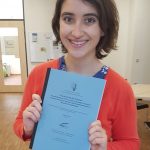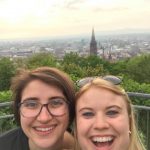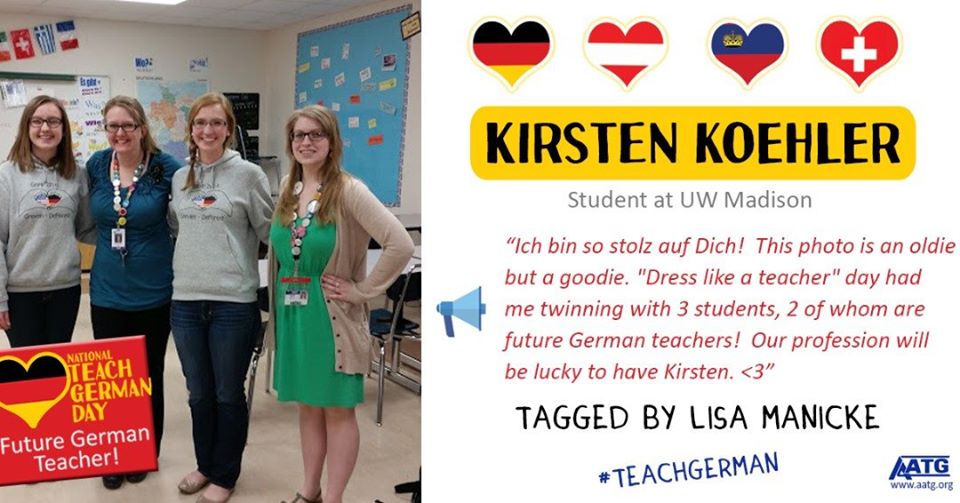
Internship Profile: Kirsten Koehler
2019-12-18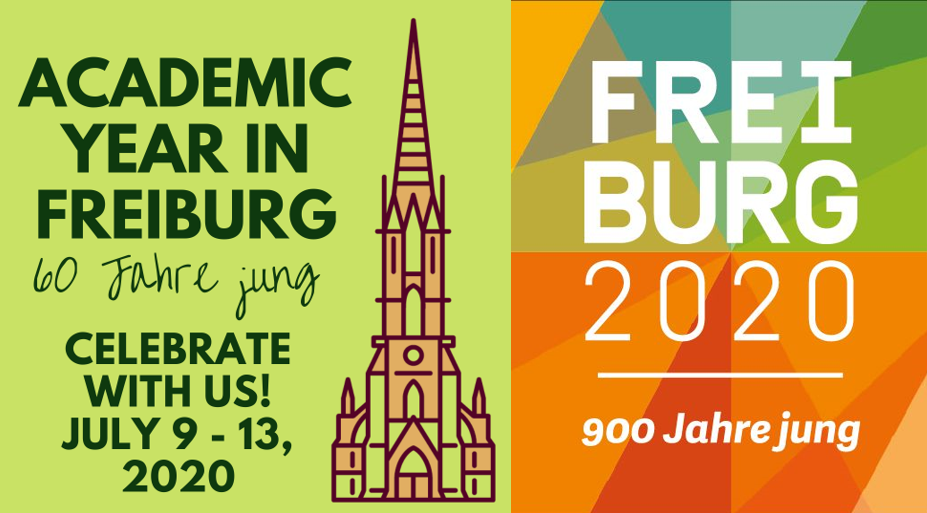
Invitation: AYF Anniversary and Reunion 2020
2020-01-20Alumni Profile: Sophie Callahan
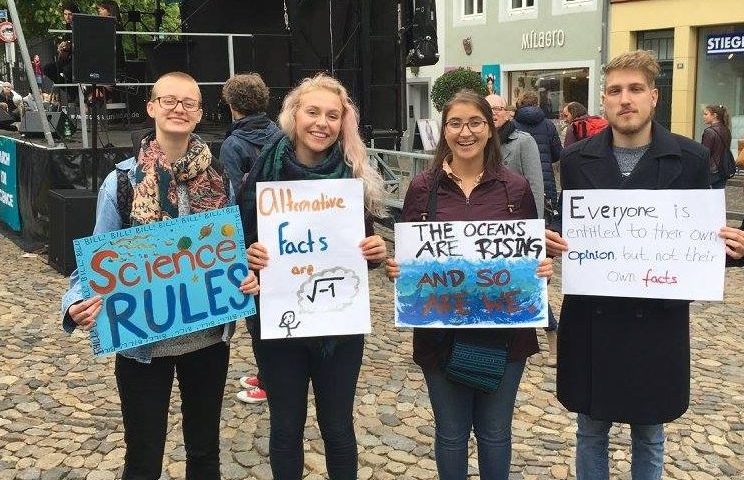
Sophia and AYF friends at the March for Science in Freiburg
Completing a Master’s degree in Environmental Governance in Freiburg
By Timothy Brewer (AYF 18-19)
Sophie Callahan is originally from St. Paul Minnesota and participated in the AYF Program during the 2014-15 year. She is currently living in Bonn, working in the field of international sustainable development. In December 2018, Sophie completed her master’s thesis at the Albert-Ludwigs-Universität Freiburg titled: Constructing the frontier: An examination of 19th century concepts of nature, German-American settlers, and transformations in Wisconsin’s landscape. Her thesis was submitted in partial fulfillment of the requirements for the degree of Master of Science in Environmental Governance.
As Sophie puts it, coming back to Freiburg for her master’s was a much different experience compared to her time with AYF. Her master’s program was international, intense, and small, and she spent all of her time with people from 22–25 different countries. “It was a different Freiburg from AYF,” Sophie explains, “It was a different country altogether while doing the master’s…” In applying to the university in Freiburg, she explains that the process was very relaxed and that it was generally straightforward to apply to the MEG program.
Sophie’s idea to come back to Freiburg and pursue a master’s thesis was ignited by a course she took on environmental history at the UW-Madison, but found the MEG program with the help of a friend she made during her year with AYF. Her thesis topic grew out of her interest in environmental history themes; Sophie was especially interested in the idea of colonization and decolonization as well as their relationship with the environment. Sophie was keenly interested in the ways people make decisions on perceptions and narratives of the environment, specifically looking at the case of the Midwest and Wisconsin.
There were pros and cons to the thesis process in Germany, according to Sophie. The general perception is that “there is just maybe less hand holding, or rather less institutional support generally.” She also describes the organizational process of writing the thesis in the master’s program in Germany, perhaps compared to the process in the U.S., “We were left to organize every part of our thesis, no seminars or time was set aside for it.” Sophie explains further that writing the thesis was flexible timewise, especially because of the lack of tuition fees. When she started writing the thesis, she was able to manage her own time and to find motivation and networked with other graduate students in order to create structures and organizational methods. “There are resources if you really struggle, but you’re given six months to write it, no proposal needed,” explains Sophie.
In terms of the next life steps, Sophie sees herself eventually returning to North America. Because of the recognition of the master’s program in Freiburg, she expressed that the transition to North America might be overall challenging but nevertheless very possible. “When I connect with people here, there’s a thought that comes up: how is this going to translate when going back to the US or Canada?” Sophie’s thesis gives a vital perspective on environmental history and themes of the relationship with the environment and immigration in the Midwest.
Sophia shared her story via the AYF Alumni Profiles Project page. We welcome your contribution to our communal story telling!


